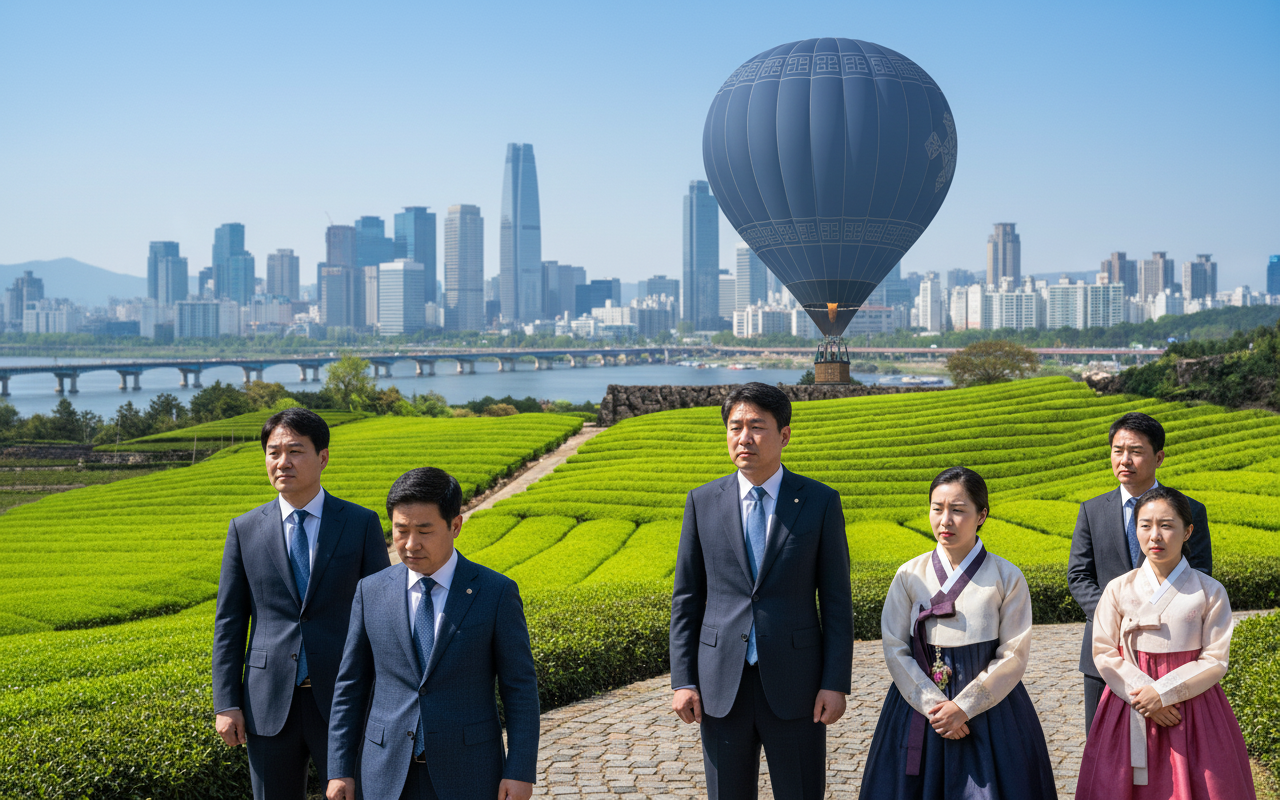Takaichi Becomes Japan's First Female Prime Minister; South Korea Needs Flexible Diplomacy (Fictional)

Sanae Takaichi Inaugurated as Japan's First Female Prime Minister... Signaling a New Political Landscape
October 21, 2025, marked a new chapter in Japanese political history. Sanae Takaichi, President of the Liberal Democratic Party (LDP), was elected as the 104th Prime Minister of Japan, becoming the first female prime minister in the history of Japan's parliamentary cabinet system. This election is injecting fresh energy into Japanese politics while also generating diverse perspectives on future governance. While Prime Minister Takaichi has secured a strong base of support by consistently displaying hard-line conservative leanings, concerns have also been raised regarding relations with neighboring countries. In particular, with sensitive issues such as historical grievances and territorial disputes remaining unresolved in relations with South Korea, attention is focused on the direction of the Takaichi cabinet's foreign policy. In this situation, the South Korean government must exercise sober judgment, prioritize national interests, and carefully navigate its relationship with Japan. Prime Minister Takaichi's inauguration is expected to significantly impact not only domestic Japanese politics but also the geopolitical landscape of Northeast Asia, putting South Korea's diplomatic capabilities to the test.
Collapse of the LDP-Komeito Coalition and the Launch of a New Coalition
Prime Minister Takaichi's path to inauguration was not without its challenges. Although she won the LDP presidential election on October 4, the Komeito Party, a former coalition partner, declared its withdrawal from the coalition due to policy differences, plunging the political situation into turmoil. Komeito's departure placed a significant political burden on Prime Minister Takaichi, raising concerns about stable governance. However, Prime Minister Takaichi successfully overcame this crisis by forming a new coalition with the Japan Innovation Party. The Japan Innovation Party is a relatively new party based in the Osaka region, with somewhat different political leanings than the LDP. Therefore, it is predicted that the coalition between the LDP and the Japan Innovation Party may face considerable difficulties in the policy decision-making process. Nevertheless, Prime Minister Takaichi has secured stability in governance through the coalition with the Japan Innovation Party, enabling her to focus on resolving pressing domestic and international issues. The launch of this new coalition heralds another shift in the Japanese political landscape, and attention is focused on the future direction of Japanese politics.
Key Personnel Appointments in the Takaichi Cabinet
Prime Minister Takaichi clearly revealed her political colors in the cabinet appointments as well. She nominated Minoru Kihara, former Minister of Defense, as Chief Cabinet Secretary; Satsuki Katayama, former Minister in charge of Regional Revitalization, as Minister of Finance; and Toshimitsu Motegi, former Secretary-General of the LDP, as Minister of Foreign Affairs. The new Chief Cabinet Secretary, Minoru Kihara, is recognized for his stable crisis management skills, while the new Minister of Finance, Satsuki Katayama, is expected to focus on securing growth engines for the Japanese economy based on her deep understanding of economic policy. Furthermore, the new Minister of Foreign Affairs, Toshimitsu Motegi, is expected to contribute to strengthening Japan's diplomatic standing based on his extensive diplomatic experience. Prime Minister Takaichi's appointments are interpreted as a move to ensure stable governance, with the intention of enhancing policy expertise by giving important roles to experts in each field. However, some criticize the appointment of Prime Minister Takaichi's close associates, and the key challenge will be whether she can gather diverse opinions and make balanced policy decisions in the future cabinet operations.
Deepening Social Conflicts in the United States and Changes in the International Order
Meanwhile, separate from the political changes in Japan, the domestic situation in the United States is becoming increasingly complex. Social divisions are deepening as political conflicts escalate, fueled by the 'MAGA' slogan, and social unrest is intensifying with the implementation of extreme measures such as designating 'Antifa' as a domestic terrorist organization. These social conflicts raise fundamental questions about the American political system and democracy itself, and there are concerns that they could negatively impact America's international standing. In this domestic climate, US President Donald Trump is continuing his hard-line policy stance, including dismissing the Register of Copyrights for advocating for strengthened copyright protection. Furthermore, the United States is considering withdrawing from the WTO system, which deals with international intellectual property rights agreements, potentially destabilizing the global copyright protection system based on the Berne Convention and the WIPO system. This can be interpreted as the United States revealing its intention to prioritize its own interests and reshape the international order, raising concerns in the international community. Moreover, conflict between the federal government and state governments is also intensifying, with the Trump administration's attempt to deploy the National Guard in Illinois and expand federal authority escalating into legal disputes.
Spread of Anti-China Protests in South Korea and Social Controversy
In addition to these changes in the international situation, anti-China protests are spreading within South Korean society, sparking social controversy. Anti-China protests are taking place across the country, including in Jayang-dong, Myeong-dong, Daerim-dong, Guro in Seoul, and Ansan in Gyeonggi Province, and a café in Seoul has declared a "No Chinese Zone," further amplifying the controversy. This phenomenon is a stark example of the spread of negative sentiment toward China throughout South Korean society. While anti-China protests are triggered by a variety of factors, they are analyzed as the result of a complex interplay of concerns about China's economic growth and military expansion, cultural conflicts, and historical issues. The South Korean government must make multifaceted efforts to resolve these social conflicts and prevent the spread of xenophobia. Furthermore, efforts are needed to resolve conflicts through constructive dialogue and mutual understanding, and to build a healthy multicultural society. President Jae-myung Lee of South Korea must skillfully address these domestic and international challenges and concentrate all his capabilities on promoting South Korea's national interests.
